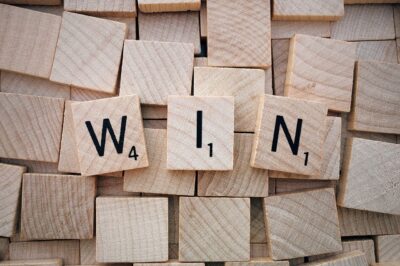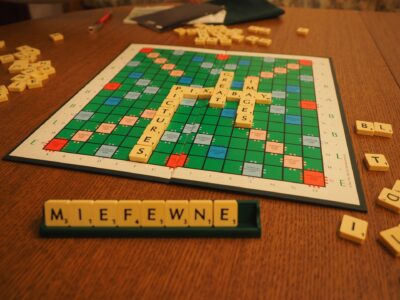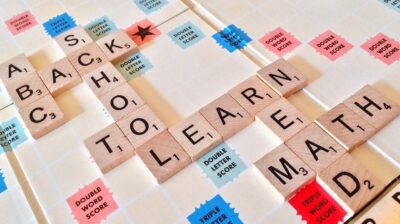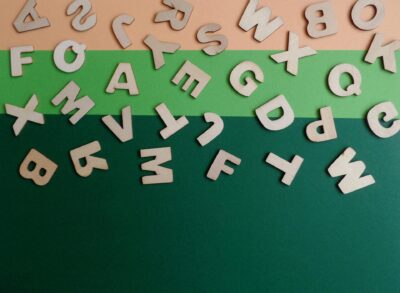
Scrabble is one of the most popular, and most competitive, word-games on the market. With Scrabble sometimes compared to war games like chess, it’s no doubt that becoming a Scrabble champion requires a lot of analytical skill. But unlike chess, Scrabble contains a chance element. Players have to randomly draw their tiles each turn, meaning the game isn’t necessarily equitable. One player may draw hand after hand of bad tiles while the other rakes in easy wins. Ever tried to play an all-vowel word, anyone?
Scrabble champions corroborate this inequity. In interviews, players like Craig Beevers and Robin Pollock Daniel have agreed that the element of luck in a game can tip the final score in favor of the less-skilled player.
But how much of the game is up to chance, really?
About 10-15% of Scrabble is luck-based
While luck is certainly an element of Scrabble gameplay, it doesn’t entirely determine the game. There’s a reason that there’s an elite pantheon of players that are sure to trump you in almost every game.
Most estimates put the influence of luck on a Scrabble game at around 10-15%. Sometimes, this margin is enough to tip a game, particularly if two players are very closely matched in terms of skill. However, most of the time, games are ultimately determined by skill and technique. In fact, if you’re better than your opponent, you can probably expect to beat them at least 85% of the time. The other 15% of the time, the outcome of the game will be determined by luck. Vice versa, if you’re demonstrably worse than your opponent, you will probably lose at least 85% of the time.
And studies have corroborated the fact that most people playing this game know it’s tough: more than three-quarters of players agree that Scrabble is predominantly a skill-based game, according to one study.
In general, a good rule for anyone competing in games is to remember not to be a sore loser. Yes, luck does play a small part in winning at Scrabble. But if you find yourself losing, don’t whine about bad tiles: just take the loss graciously, and move on.
How lucky or unlucky are various tile draws?
Players say that there’s an element of luck to the randomness of drawing tiles. But what tiles are lucky vs. unlucky? In fact, this varies by the player and by the game. Depending on how the game is going and what different tiles you have, any given tile can either be massively helpful and secure a win; or destroy your carefully-laid plans.
However, a mathematical analysis done by one Scrabble aficionado seemed to show that some tiles usually improve a player’s overall outcome. On the flip side, there are also some tiles that serve more as a burden to players than a boon.
- X and Z help players by around seven points on average.
Players generally disagree on whether it is good to get high-value letters. On one hand, having a high-value letter will earn you more points when you play it on the board, especially if you can play it on a bonus-point square. On the other hand, it’s much harder to incorporate these words into your plays. However, statistical analysis has shown that the benefit of the X slightly outweighs the risks. Xs and Zs generally earn players around 6 to 8 extra points each.
- On the other hand, the Q tile hurts players by five points on average.
But not all high-value tiles are created equal. Evidence suggests that the Q tends to harm players more than it helps them, probably because it’s so hard to fit a Q into a long word. If you can’t find a U, you’re in a tough spot – and your average point value will likely drop around 5 points on average.
- Blank tiles are the biggest boon for experienced players. They can help players earn as much as a 30-point boost, probably because of their potential to help players earn bingos.
For novice players, it might seem like blank tiles aren’t that much of a help. Sure, they allow you to play words you otherwise wouldn’t be able to, but blank tiles aren’t worth any points, so they don’t directly increase your score. However, the flexibility of a blank tile greatly increases a player’s ability to get a bingo. That means in the end, it can have a hugely positive impact on your overall score.


